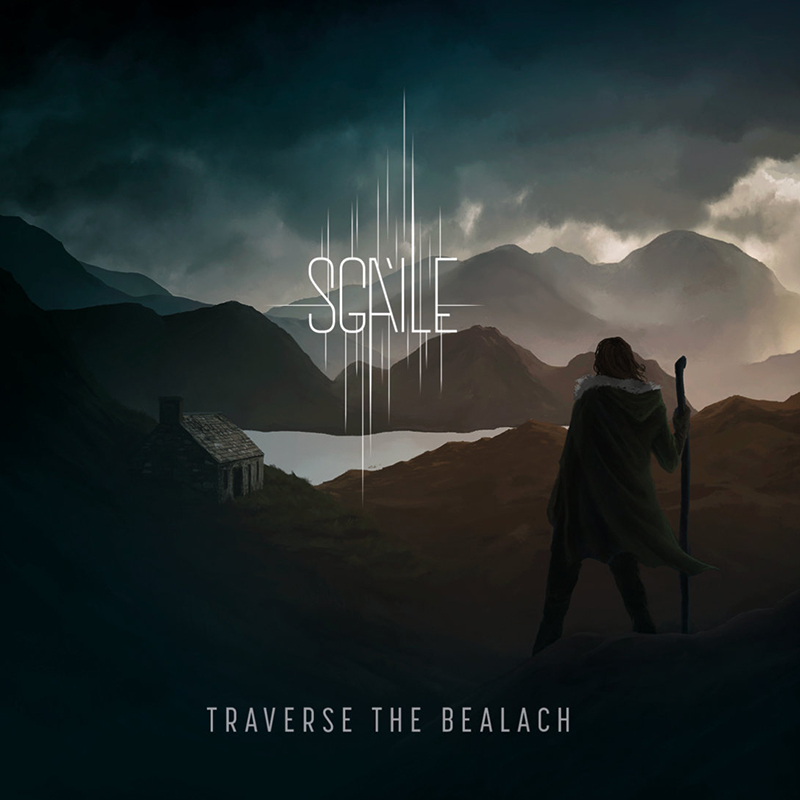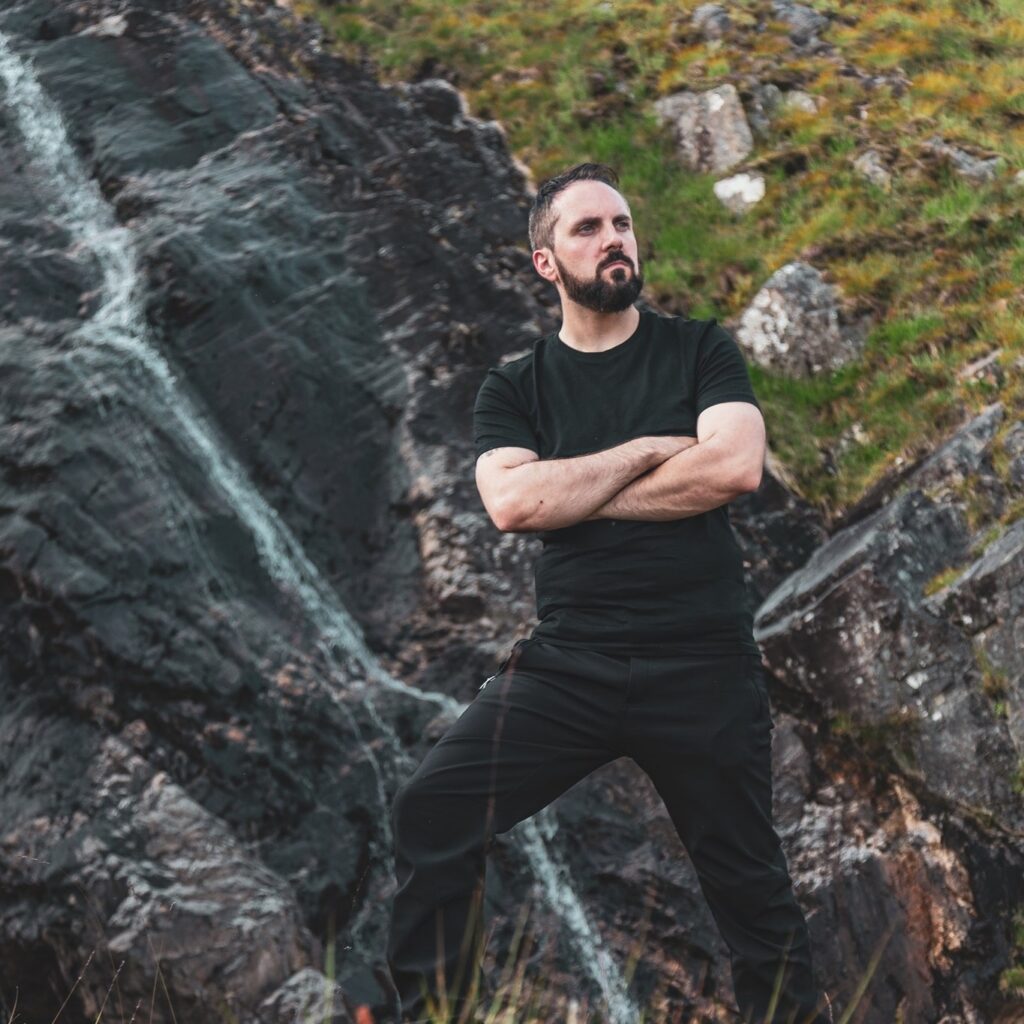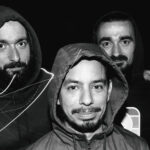Extramusic recently had the privilege of delving into the atmospheric realms of Sgàile, the one-man progressive metal project spearheaded by the immensely talented Tony Dunn, known for his contributions to Saor, Falloch, and Cnoc An Tursa. Hailing from the vibrant musical scene in Glasgow, Scotland, Sgàile returns after two years since the debut album “Ideals & Morality” with a captivating new record titled “Traverse The Bealach.”
In this exclusive interview, we had the opportunity to engage with Tony Dunn, the creative force behind Sgàile, to explore the profound narrative woven into “Traverse The Bealach.” The album unfolds a post-apocalyptic tale set in the scenic landscapes of Scotland, following the journey of a nomadic traveller navigating the challenges of a world grappling with the aftermath of a global pandemic and the relentless impact of climate change. The protagonist’s expedition northward becomes a symbolic exploration, both external and internal, as he confronts the elements and battles personal demons along the way.
Inspired by the events of the pandemic, humanity’s ongoing struggle with climate change, and Dunn’s profound fascination with long-distance hiking, “Traverse The Bealach” emerges as a sonic odyssey that seamlessly blends the intricacies of progressive metal with a narrative depth that resonates with the contemporary human experience. Join us as we dive into the creative process, thematic inspirations, and the musical landscape of this remarkable album in our conversation with Tony Dunn.
The appreciation of nature seems to be a significant influence on Sgaile’s music. How does your connection with the Scottish landscape shape the themes and atmosphere in your albums?
It has a profound effect on my writing to be honest, I feel most inspired when I’m away from civilisation, when I’m hiking or camping. I don’t find myself desperately scribbling down lyrics or anything like that, but the inspiration and feeling of calmness always seem to carry over into the next writing session or two.
The name “Sgaile” means “ghost” or “shade” in Gaelic, and it reflects not fitting in with the Scottish Black Metal scene. Could you elaborate on how this sense of not fitting in has influenced your musical approach?
Well, I didn’t grow up in the black metal scene, my teenage influences were more rooted in emo and metalcore. It was only when I joined Falloch in 2012 that I was exposed to this subgenre, but I immediately fell in love with the likes of Alcest, Lantlos, Winterfylleth, the acts with the more melodic black metal stylings. However, I was mostly listening to different music than the band mates I had at the time, I was heavily into djent at the time, Periphery, Monuments, Tesseract etc, which wasn’t looked upon favourably in the black metal scene. Black metal has a particularly elitist element as we all know, so I always felt slightly out of the circle because I wasn’t well versed in the genre.
In terms of how it’s influenced my writing, I’ve literally just always written in a stream of consciousness style, and whatever comes from that is simply Sgàile. It’s purely music that makes me happy, not influenced by any external factors.
“Traverse the Bealach” is described as teeming with progressive metal goodness. Can you share more about the musical elements and inspirations that went into creating this album?
Like I mentioned, I genuinely sit down with my guitar or keyboard and put ideas down, there is no set blueprint or rigid structure that I feel I have to stick to. This project will always be self gratifying first, and by that I mean if the music is not fun to listen to and it doesn’t move me personally, it doesn’t get put down on record. Inspiration-wise, I’ve always felt heavily influenced by Devin Townsend, he’s probably the artist that I’d aspire to be most like, both musically and as a person. Other major influences are mostly towards the progressive side of the metal spectrum. Acts like Katatonia, Karnivool, The Ocean, Tool etc.
Your distinctive clean vocals have been compared to Niege’s, with hints of 80’s alt rock. How did you develop your vocal style, and how do you feel it complements the progressive rock and folk metal elements in your music?
I didn’t develop any sort of vocal style knowingly, it just evolved over time from lessons that I learned from time in previous bands. I learned a huge amount from touring with Falloch, about how dynamics are just as important as melody. Progressive metal has always leant itself towards clean vocals, look at what Mikael Akerfeldt has done with Opeth, it’s a perfect example of heavy music working well with an emotional clean vocal. I feel that it’s maybe not considered often enough within our genre, and that maybe I’ve stumbled upon something relatively unique through just writing and being myself.
The track “Psalms To Shout At The Void” sets the scene for the album, feeling like a dawn awakening. Can you share the inspiration behind this opener and its connection to the album’s overarching theme?
Psalms was one of the earliest songs written for the album, and I hadn’t considered it to be an opener as such, until I extended the intro and built on the guitar motif that repeats in places throughout a few of the songs. The funny thing about it is that, when thinking about writing a concept album, the first thing I thought about was that “I’m not a storyteller” because I wasn’t sure I could achieve the writing of a story. That ironically became the first lyric on the record. The lyrics for this particular song were incredibly easy to write because I wasn’t trying to progress the story in any way, just establishing the character of the traveller and his surroundings. It got more difficult as the album went on!

“Lamentations By The Lochan” is described as an exorcising exercise. What emotions or experiences influenced the creation of this particular track?
It was inspired by a camping trip I took with my best friend a couple of years back when we camped next to a remote Lochan on a misty autumn night. I was in the midst of thinking about lyrics, and it came to me that the traveller would experience feelings of existential crisis and dread, so I used my feelings of nervousness during that misty camp to come up with the next stage of the story.
“Silence” is highlighted as one of the album’s highlights, combining heaviness and melody. Can you delve into the storytelling aspect of this track and how the music itself contributes to the narrative?
Silence is probably my favourite on the album lyrically. It is the simplest narrative, as it is simply about the feeling of a complete void of noise. When camping at the top of some remote Scottish mountains, I have felt this void almost like a physical presence. Musically, I remember thinking I had finished the song at around the 8 minute mark and then suddenly coming up with the entire end section in a few hours, just playing around with piano sounds and some clean guitars and realising it all fit together. It’s the best feeling when that happens!
The clean vocals in Sgaile are mentioned as accessible to a broader audience. How do you balance the progressive and folk metal elements with the aim of making the music inviting to a wide range of listeners?
I feel like I’ll repeat myself by saying this but it’s the complete truth. I don’t write to please an audience, I write to create music for myself and just hope that others will gravitate towards it. Luckily people seem to enjoy what I write! Hopefully that continues in the future.

The album’s themes seem to revolve around a personal journey of solitude. How does this theme manifest in your lyrics and music, and what do you hope listeners take away from this introspective journey?
I hope that listeners will understand the complex range of emotions that are poured into this record. I went through quite a lot of personal challenges while writing and recording this album. We experienced a global pandemic, my second daughter was born, I had some challenges in my career, and all of those events manifested themselves either lyrically or musically into TTB in some way! Ideals & Morality was a more obviously “personal” record, but Traverse The Bealach is incredibly personal at points too.
“Entangled in the Light” is as a personal offering, with reflections on the past. Can you share more about the protagonist’s journey in this track and the emotions you aimed to convey through the lyrics and music?
Entangled is partly a song for my two daughters, and partly an end to the story of the traveller. I really wanted to write something for my kids and I had the idea of incorporating that into the story, so the first half is addressed towards my girls, but with a bit of a swerve in places to keep it in line with the character’s narrative as he ends his journey. The second half of the song is genuinely how I think we would all feel when faced with death or transition to another plane of existence. To “Traverse The Bealach, discover what’s next” is to make that transition and find out what awaits us on the other side.



